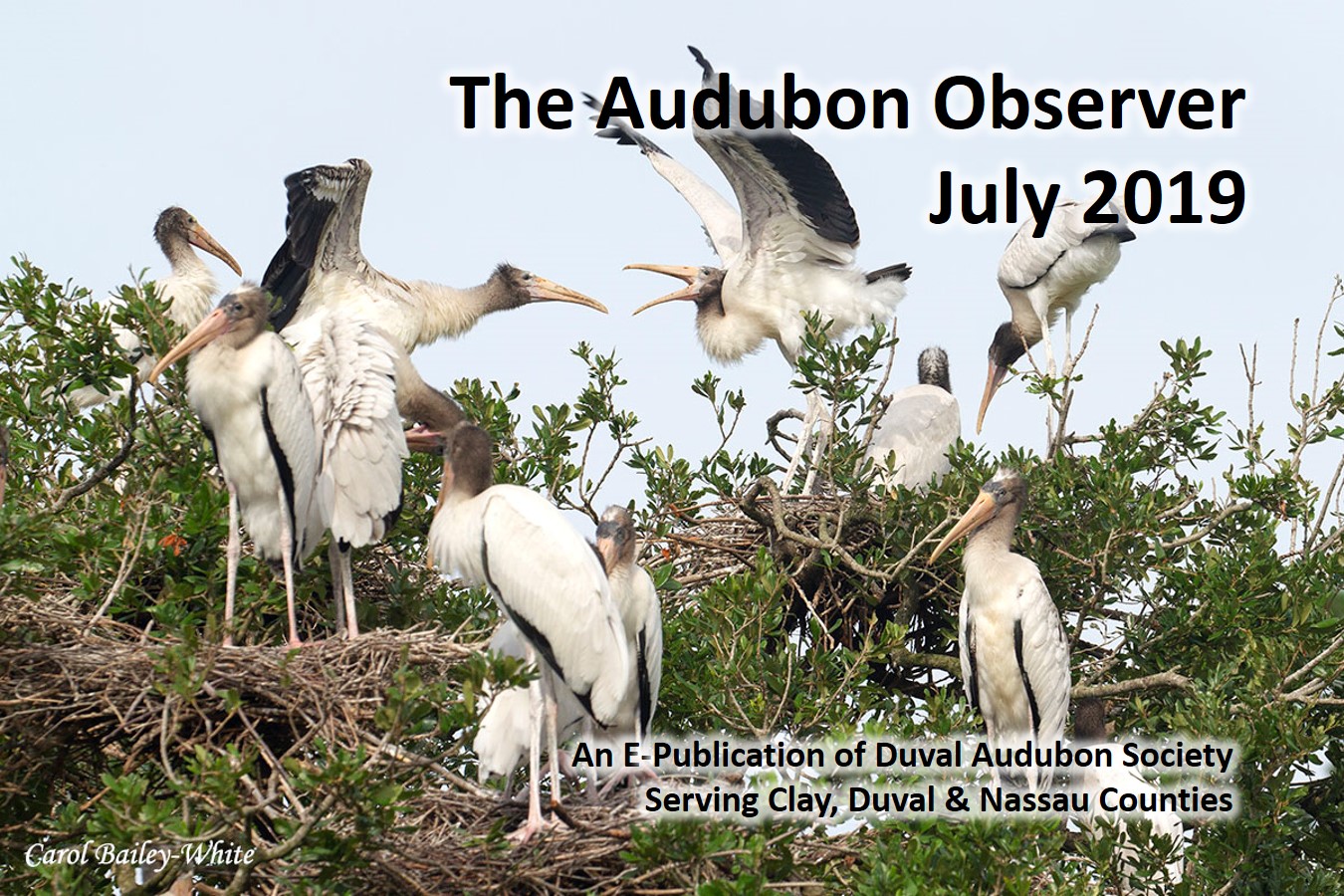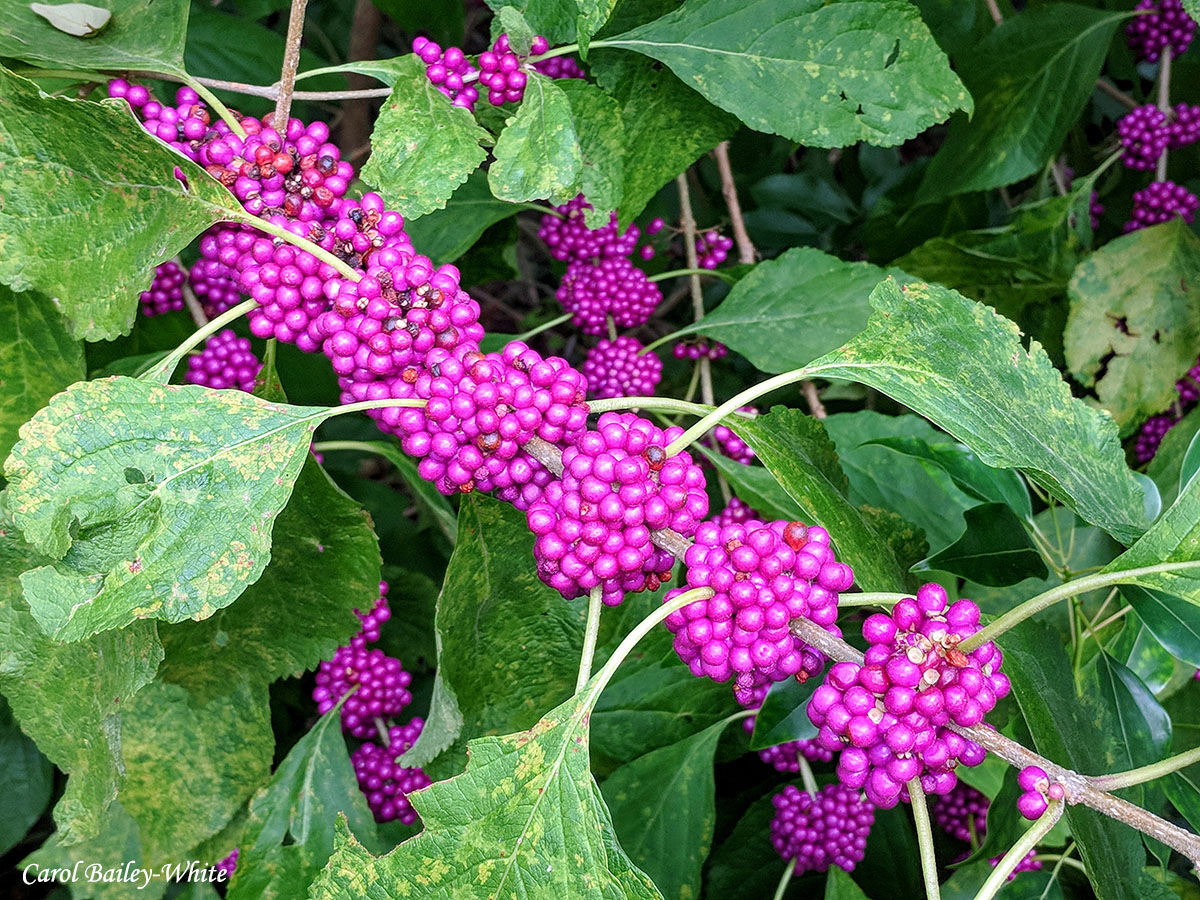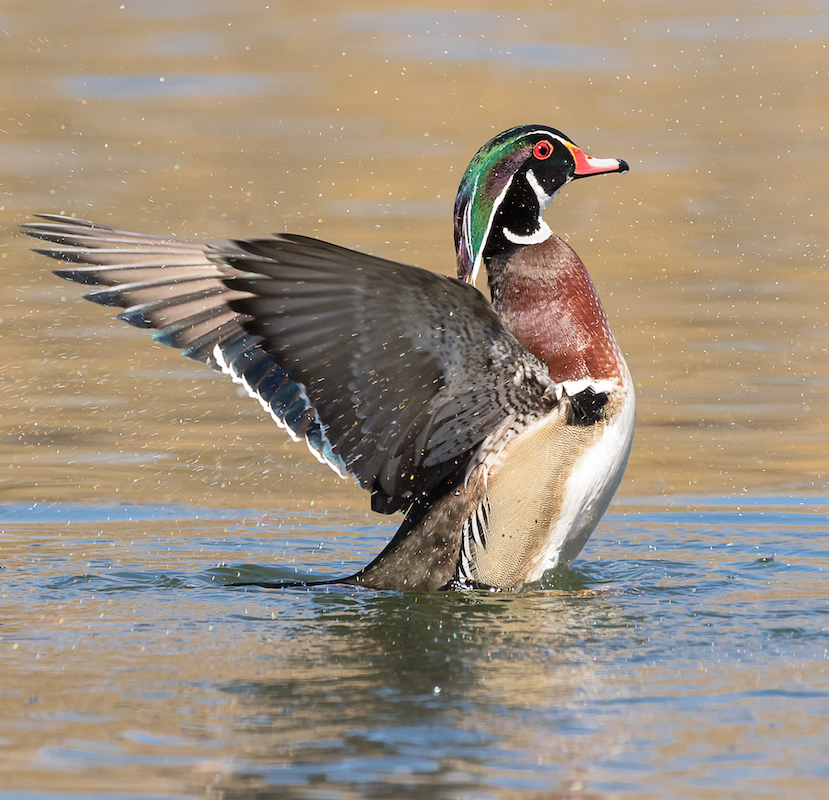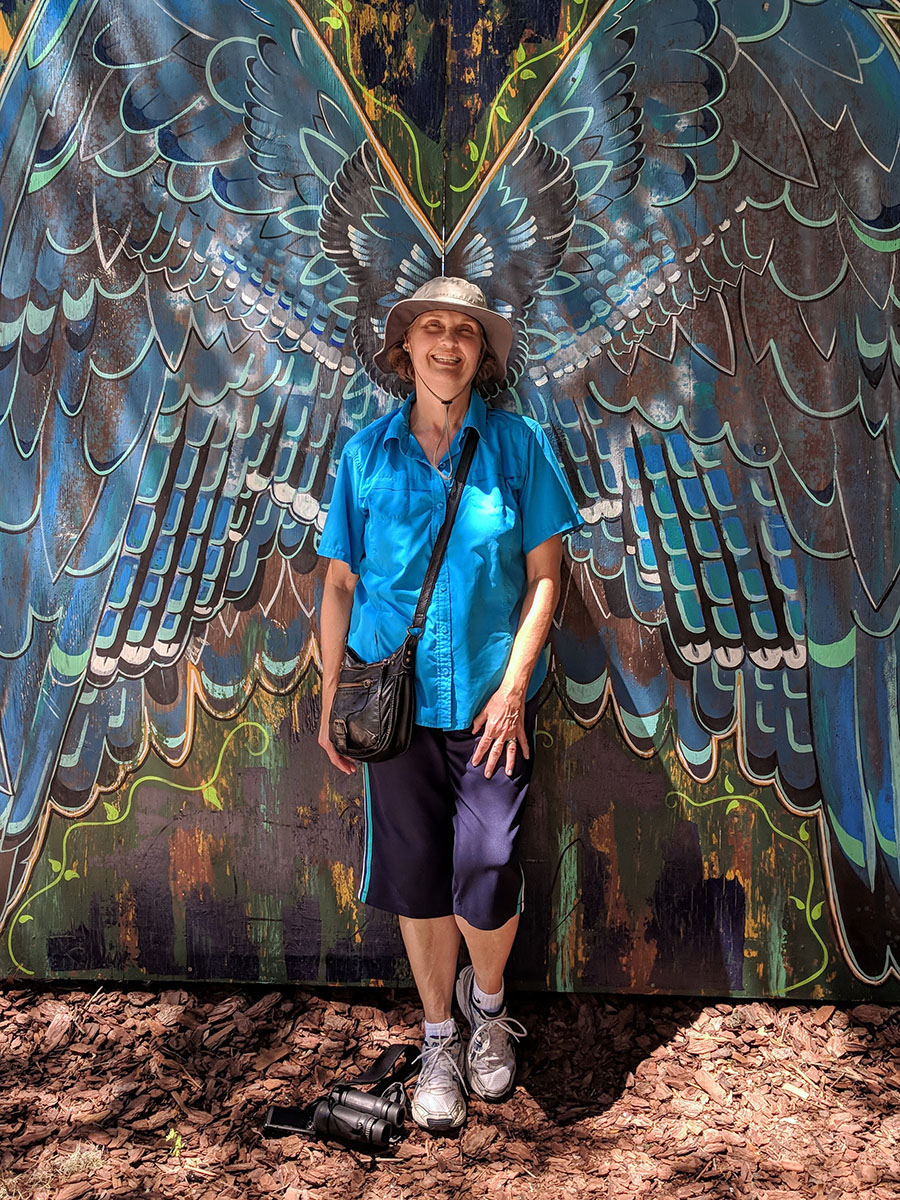The Audubon Observer, July 2019
|
|
||||
|
NEW MONTHLY FEATURE: NATIVE PLANTS FOR BIRDS Birds are nature’s messengers and today they are experiencing the devastating effects of climate change and habitat loss. Pollinators like bees, butterflies and other insects are suffering severe losses as well. In the face of these threats, you can help birds and pollinators by making your yard more bird friendly. If you don’t have a yard, you can still help by creating a native plant container garden on your patio or balcony. Even a very small patch of habitat can provide hungry birds with what they need during migration. To help you create bird friendly habitat in your landscape, we will be posting a native plant each month which is beneficial to birds and pollinators. Our first plant is: American Beautyberry (Callicarpa Americana):
For additional information on native plants for birds, check out Audubon's excellent Plants for Birds website: Audubon.org/plantsforbirds. These native plants nurseries in our area do not have a storefront, but can get plants for you on request:
If you are not opposed to ordering online, Mail Order Natives is an excellent source for native plants. They are located in Lee, Florida. In addition, the Ixia Chapter of the Florida Native Plant Society often has native plants as well as cuttings available at their monthly meetings. They are on summer break right now, but in September will resume their meetings on the first Tuesday of each month. Check out their Events Calendar for all of their upcoming activities. --Jody Willis, President, Duval Audubon Society URGE CONGRESS TO SUPPORT CLIMATE SOLUTIONS From Audubon's Action Center:
Ask your elected officials to support the Better Energy Storage Technology Act of 2019! The Better Energy Storage Technology (BEST) Act of 2019 invests in the innovative technology needed to make the transition to clean energy sources. Click here to take action on this important issue today! SUMMER VOLUNTEER OPPORTUNITIES
Shorebird Stewarding: If you want to help shorebirds this summer, contact Audubon Florida's Northeast Florida Policy Associate Chris Farrell at cfarrell@audubon.org for details. Your stewardship is greatly needed and sincerely appreciated! ------------------------- Friday Mornings in Jax Parks:
For all projects, volunteers must wear closed-toed shoes and it is highly recommended that they bring work gloves, sunscreen, insect repellent, a hat, sunglasses, and water in a reusable water bottle. ------------------------- St. Johns RIVERKEEPER Monthly Cleanups:
All Rising Tides cleanups are Rain or Shine, and participants must wear closed-toed shoes, and should also bring sunscreen, bug spray, work gloves, a hat, sunglasses, and water in a reusable bottle. BOARD MEMBER SPOTLIGHT: CAROL BAILEY-WHITE
I haven't always been a birder, though. As a child in Kentucky, I remember my father being fascinated with backyard birds like Northern Cardinals, Blue Jays and Black-capped Chickadees, but I didn't really begin to appreciate birds until I started participating in Duval Audubon Society field trips about ten years ago. I remember being astounded at the depth of knowledge of the field trip leaders, and so grateful for their gracious willingness to share that knowledge with others. At the beginning I felt like I would never be able to identify the birds I was seeing, but at each field trip I attended, I learned something new. My photography hobby also helped, as I would take (mostly terrible) photos of the birds I saw and be able to look them up online (usually at AllAboutBirds.org) afterwards, cementing that bird's appearance in my brain. Since then, my passion for birds and nature has only grown. I went on an amazing birding adventure in North Dakota last summer, where I bagged 44 new birds for my life list, and traveled to Maine two years ago to participate in Audubon's Hog Island Camp. I plan to go to Hog Island again this fall - I can't wait! During our upcoming season (September 2019 - May 2020), I will be leading several field trips at some great birding spots in Northeast Florida, and I love sharing what I've learned with anyone who wants to "connect with nature." If you are an Audubon member, look for our programs and events flyer in your mailbox in late August, and of course we will have all of our activities posted on our website, Facebook, and Meetup pages as well - please join us! --Carol Bailey-White, Vice President Duval Audubon Society, Inc. |
||||

 This shrub grows 5-6 feet tall and prefers light exposure of part sun to full shade. It is tolerant of drought and cold weather and is one of the best plants to attract birds to your yard. It is deciduous in our area (meaning that it drops its leaves in winter). It readily spreads by self-sown seed in the garden or from cuttings. Since beautyberry scarcely branches above the base, it should be cut back in the late winter after the leaves are gone. This keeps it compact and results in vigorous young growth that flowers and fruits heavily. The blooms are small, clustered pale purple flowers which appear in the late spring and summer and attract butterflies. In the fall, beautiful lavender berries grow clustered on the stems and remain throughout the winter, if they are not devoured by the migrating and resident birds! Birds that will eat the berries include: wrens, sparrows, vireos, mockingbirds, cardinals, woodpeckers, chickadees, waxwings, and nuthatches.
This shrub grows 5-6 feet tall and prefers light exposure of part sun to full shade. It is tolerant of drought and cold weather and is one of the best plants to attract birds to your yard. It is deciduous in our area (meaning that it drops its leaves in winter). It readily spreads by self-sown seed in the garden or from cuttings. Since beautyberry scarcely branches above the base, it should be cut back in the late winter after the leaves are gone. This keeps it compact and results in vigorous young growth that flowers and fruits heavily. The blooms are small, clustered pale purple flowers which appear in the late spring and summer and attract butterflies. In the fall, beautiful lavender berries grow clustered on the stems and remain throughout the winter, if they are not devoured by the migrating and resident birds! Birds that will eat the berries include: wrens, sparrows, vireos, mockingbirds, cardinals, woodpeckers, chickadees, waxwings, and nuthatches. Audubon's science shows that almost half of North American bird species are threatened by climate change. The survival of some of our most beloved species is dependent on our ability to quickly and significantly reduce greenhouse gas emissions, in part by shifting to clean energy sources.
Audubon's science shows that almost half of North American bird species are threatened by climate change. The survival of some of our most beloved species is dependent on our ability to quickly and significantly reduce greenhouse gas emissions, in part by shifting to clean energy sources. Even though we are on summer break right now, there are still plenty of ways for you to help protect birds and wildlife all summer long! Check out these fun ways to get involved and make a difference in our area this summer:
Even though we are on summer break right now, there are still plenty of ways for you to help protect birds and wildlife all summer long! Check out these fun ways to get involved and make a difference in our area this summer: Hello, everyone! I currently serve as vice president on the Duval Audubon board of directors, and also manage our social media pages, website, and (this) monthly e-newsletter. I am passionate about the amazing natural wonders right here in Northeast Florida, especially our avian friends.
Hello, everyone! I currently serve as vice president on the Duval Audubon board of directors, and also manage our social media pages, website, and (this) monthly e-newsletter. I am passionate about the amazing natural wonders right here in Northeast Florida, especially our avian friends.